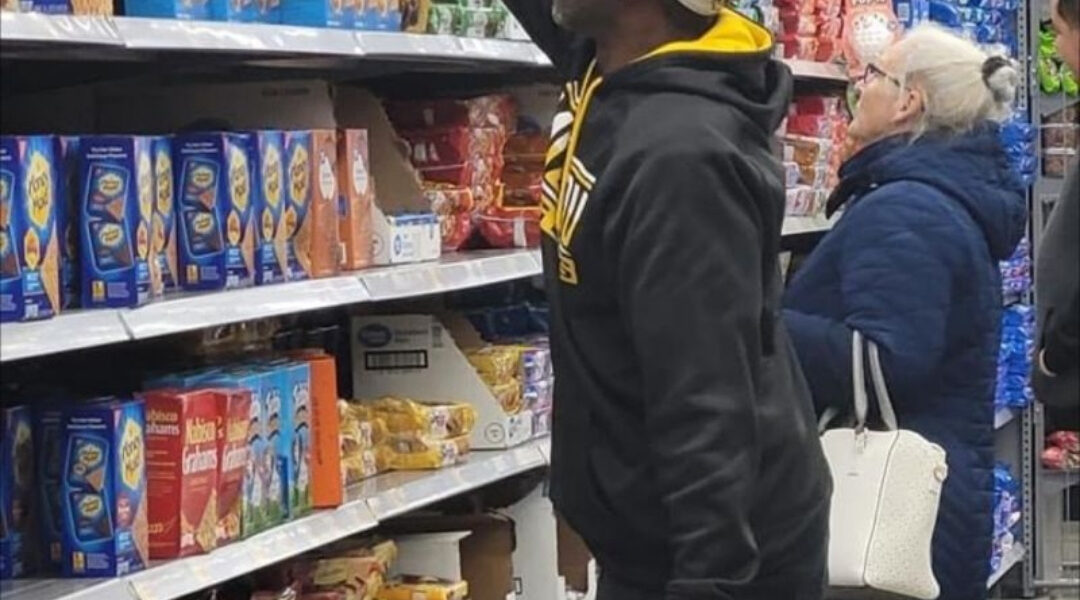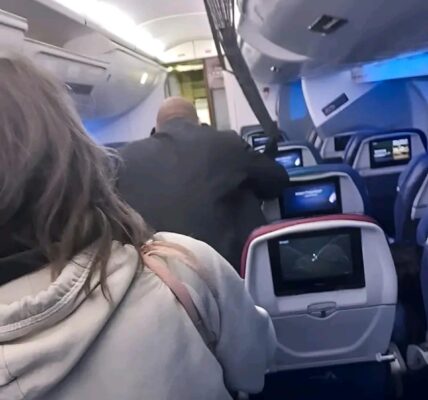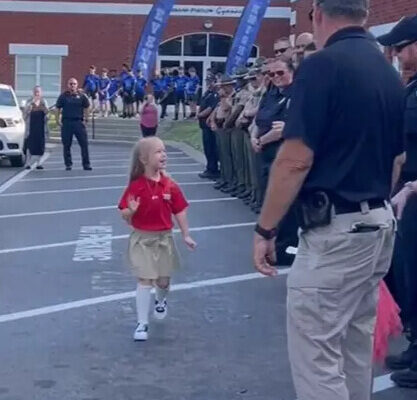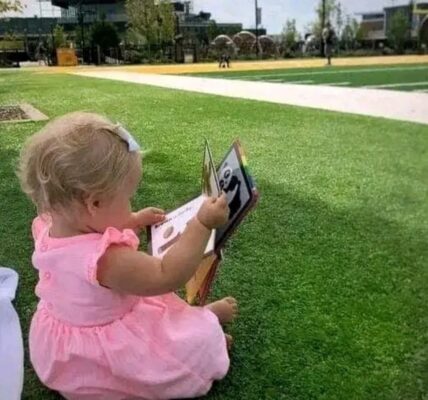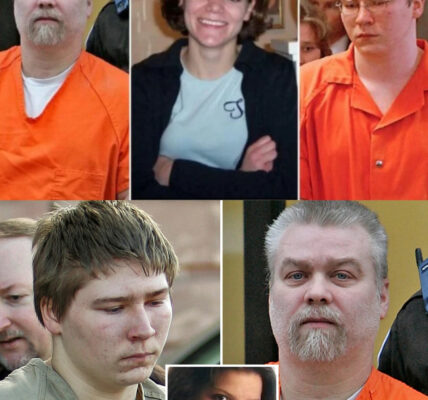The Man in the Parking Lot: A Story About Hunger, Fatherhood, and the Kindness We Almost Walk Past.
He almost didn’t roll the window down.
That was the thought that returned later — the small hesitation that could have changed everything. A stranger walked toward his car in the restaurant parking lot, hands tucked into his sleeves, eyes tired but steady, and asked the question most people are trained to turn away from:
“Sir… I’m sorry to bother you, but I’m trying to get some food for my two daughters. They’re seven and fifteen. We haven’t eaten today. Anything would help.”
There was no sign. No pleading. No dramatic display. Just a quiet voice and a hopeless kind of hope in his eyes.
And the man in the car — like most of us would — wondered if the story was real.
But instead of handing over a few dollars or offering a polite excuse, he said something different:
“I’m headed to Walmart. If you want to meet me there in twenty minutes, I’ll buy you and your girls some groceries.”
It was a test — not of honesty, but of intention.
He drove away thinking there was a good chance the man would never show up.
But when he pulled into the Walmart lot, the stranger was already there — waiting, hands in pockets, staring at the ground like someone afraid to be in the way.
And that was the moment the story truly began.
On the walk toward the entrance, the man spoke quietly.
“You’re the sixth person I asked today,” he said. “Everyone else turned me down.”
There was no bitterness in his voice. No anger. Just exhaustion — the kind that comes from carrying too much alone.
Inside the store, he walked slowly, choosing groceries carefully: bread, peanut butter, cereal, pasta, a small bag of apples, nothing unnecessary. And every few minutes, he stopped to count the items in the cart, lips moving silently. When asked if something was wrong, he said softly:
“I just want to make sure it lasts the whole week.”
That was the moment the man who offered help finally understood.
This wasn’t a scam.
This wasn’t manipulation.
This was a father starving himself to make sure his daughters could eat.
So he placed a hand on the cart and said:
“Get whatever you need. I’ve been there before. I get it.”
The father stared at him — not in disbelief, but in something deeper, like a man who had forgotten what compassion felt like. For a moment, he didn’t move. Then he nodded, swallowed hard, and added a few more things: vegetables, milk, a pack of chicken.
But the truth — the real truth — came when the weight of the moment finally broke through his silence.
“My wife left,” he said, his voice cracking. “Nineteen years… and she just left. No note. No goodbye. No calls. The girls keep asking where she is. I don’t know what to tell them.”
He tried to continue, but the words fell apart — swallowed by tears he had been holding back for months.
Then, through shaking breath, he asked:
“Do you… do you care if I give you a hug?”
There, in the middle of Walmart — between fluorescent lights, stocked shelves, and passing strangers — two men hugged like old friends, even though they had met less than an hour before.
And for the first time in a long time, someone held this man before they judged him.
Something changes in the heart when you witness someone break — not for themselves, but for the people they’re trying to protect. The man wasn’t crying because he was hungry. He was crying because he was trying to stand between his daughters and a world that had already taken too much.
He wasn’t asking for money.
He wasn’t asking for pity.
He was asking for one day where he didn’t have to fail the people he loved most.
And what stunned the man who helped him wasn’t the struggle — it was the dignity he still carried through the struggle.
He had been turned away by five people that day. Five people who looked at him and saw danger, inconvenience, or responsibility they didn’t want. But he still tried one more time.
Not for himself.
For a seven-year-old girl.
For a fifteen-year-old girl.
For daughters who still believed their father could fix things.
At checkout, the groceries filled the belt — not luxury items, not junk, just food. Real meals. Enough for a week. Maybe more.
When the bags were packed and the cart was full, the father placed his hand on it and whispered, “They’re gonna be so happy.”
Not, I’m relieved.
Not, Thank God.
But, They’re gonna be happy.
Because even in his lowest moment, his thoughts were still on them.
And that’s when the man watching him realized something he’d forgotten:
There are still good men in this world.
Not perfect men.
Not wealthy men.
Not men who always win.
But men who keep showing up — even when life breaks the door shut behind them.
Later, when he sat in the car replaying everything, he expected to feel proud of himself. But he didn’t.
Instead, he felt humbled.
Because the man he helped wasn’t weak.
He wasn’t irresponsible.
He wasn’t looking for an easy way out.
He was a father fighting battles no one could see, holding his family together with nothing but hope, love, and whatever strength he had left.
And all he needed — that night, in that parking lot — was someone who didn’t turn away.
Someone who didn’t treat him like a burden.
Someone who said, I believe you.
That was all it took to keep a man going.
Most of the world will never know his name.
They will never hear his story.
They will never see the moment he broke down in a Walmart aisle and finally let the truth out of his chest.
But one person saw it.
One person didn’t walk away.
And sometimes — that’s enough to change a life.
Because kindness doesn’t always look like grand gestures.
Sometimes it looks like walking into a store with a stranger…
and walking out having restored a piece of their faith in humanity.
